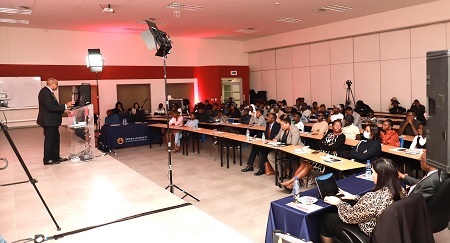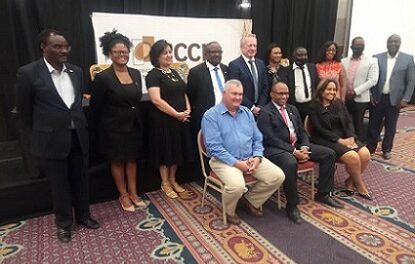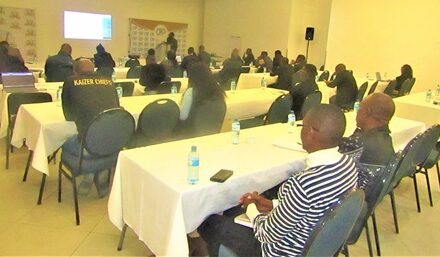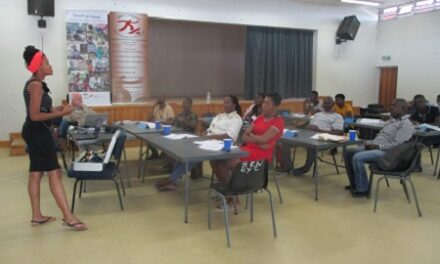The Governor of the Bank of Namibia, Mr. Johannes !Gawaxab, delivered a public lecture at the Namibia University of Science and Technology (NUST) at Eembaxu village, Ohangwena region, where he emphasised that financial inclusion of the northern regions will contribute to economic growth, reduce income inequality, enhance investments in infrastructure and make growth more inclusive and equitable.
Governor !Gawaxab emphasised that the northern regions of Ohangwena, Omusati, Oshana, and Oshikoto, which depend largely on subsistence farming and small-scale agriculture, are especially susceptible to adverse climate events such as droughts and periodic floods.
He further underscored the importance of developing a resilient rural economy through financial inclusion, which provides the essential resources and tools needed to mitigate risks and adapt to changing conditions.
The lecture, under the theme “Unlocking Opportunities for Rural and Informal Sector Development through Financial Inclusion,” highlighted the critical role of financial inclusion in transforming Namibia’s rural economy.
In his address, the Governor drew lessons from the Bank’s 2023 Annual Symposium, held under the theme “Transformation of the Rural Economy in Namibia.”
The symposium focused on rural economic development, sustainable agriculture and youth development. The symposium further emphasised the need for effective economic development endeavours in rural regions to stimulate economic growth and empower communities.
During the lecture, !Gawaxab emphasized the importance of providing individuals and businesses with access to formal financial services, such as savings accounts, credit, and insurance.
He highlighted numerous studies that demonstrate the positive impact of financial inclusion on food security, health outcomes, and educational attainment, underscoring its potential to transform lives and build a more prosperous future for all Namibians.
The Governor delved further into the microeconomic benefits of financial inclusion, explaining how access to credit and savings accounts can empower individuals and small businesses to invest in productive activities, generate income, and create jobs.
He also noted the role of insurance products in mitigating financial risks and preventing people from falling back into poverty due to unexpected shocks.
Namibia confronts a similar crisis, with President Nangolo Mbumba recently declaring a state of emergency as increasing number of Namibians experience food insecurity and seek drought relief.
“Despite Namibia’s significant progress in achieving financial inclusion, now estimated at 78%, these efforts have not translated into widespread benefits, particularly in rural areas,” !Gawaxab said.
“A substantial portion (59.3%) of the rural population remains excluded. Many Namibians (62%), especially those living in rural regions, still rely primarily on cash for income and payments.
“This reliance often requires traveling long distances to the nearest financial institutions or ATMs, which can be costly and further discourage the use of formal banking services.
“Additionally, carrying large amounts of cash poses significant security risks, including theft and robbery. High fees and charges associated with day-to-day interactions with the formal financial system also deter customers from engaging with formal financial institutions.”
A key highlight of the lecture was the introduction of the Bank’ Instant Payment Project. This innovative initiative aims to enhance financial inclusion by enabling efficient, instant, and inclusive transactions accessible on any device, including non-smartphones. The Governor explained that this solution, set to launch in 2025, would significantly reduce the Office Use Only\General time and cost associated with traditional banking services, making financial transactions more accessible to rural and informal sectors.
The Bank of Namibia’s commitment to unlocking opportunities for rural and informal sector development through financial inclusion is unwavering.
Governor !Gawaxab stated, “Financial inclusion is not just about providing access to financial services; it is about empowering individuals and communities to achieve sustainable growth and development. We must ensure that no one is left behind in our journey towards a more inclusive and prosperous Namibia.”
In the photo: Governor !Gawaxab delivering a public lecture on financial inclusion at Eembaxu, Ohangwena region.







